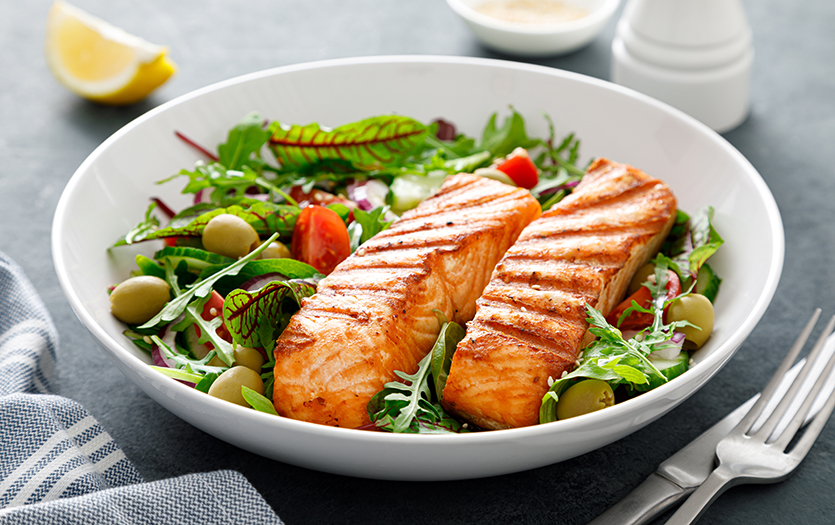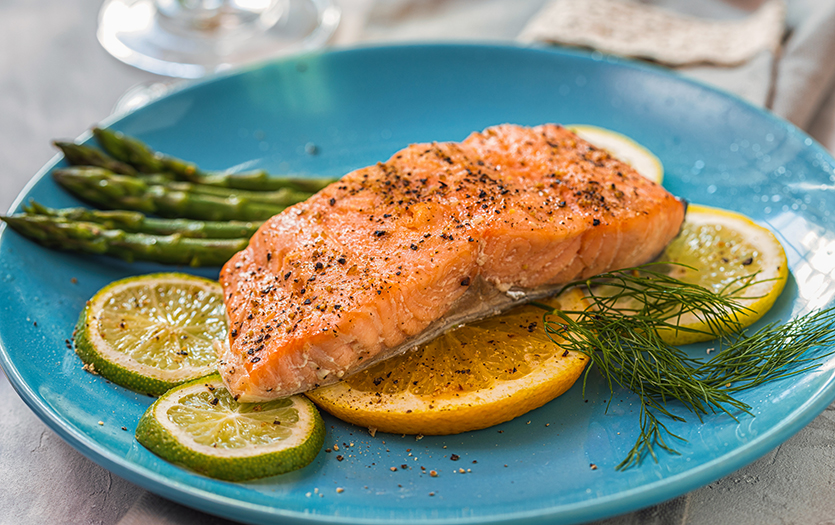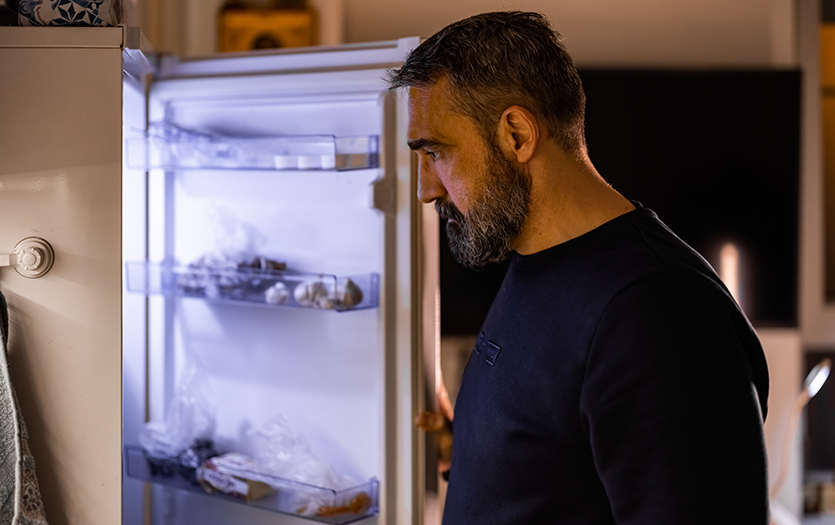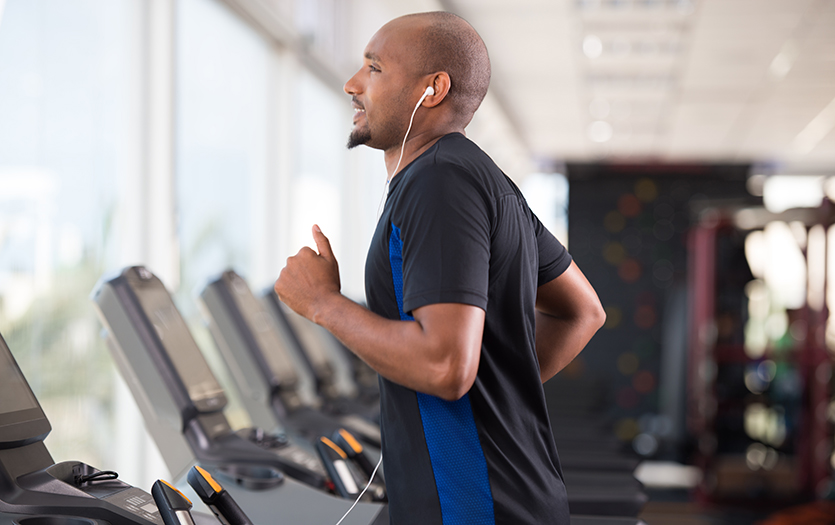
This post was written by Sami Kauffman, MA, RD, CD, sports dietitian, Parkview Sports Medicine.
Building your ideal physique seems like a simple mission: train big, eat big, sleep big. Optimization of muscle building, however, is less straightforward than that. When discussing nutrition in relation to training, the focus tends to be on macronutrients, which are important, but we often overlook the critical role of micronutrients. Micronutrient depletion and increased micronutrient needs are realities when striving for a particular physique. Let’s take a closer look at the essential players in this category.
Micronutrients to include in your diet
The vitamins and minerals that are particularly helpful for building a strong body include zinc, selenium, Omega-3s, calcium, potassium, biotin, magnesium, vitamins K, E, D, C and the B vitamins. Here is a closer look at each of these, and their role in supporting your fitness goals.
Zinc enables the production of testosterone, promotes recovery from exercise and strengthens the immune system. It can be supplemented or found in red meat, eggs, pumpkin seeds, cheese, lentils, beans and chickpeas.
Selenium can boost the immune system, fight cancer, prevent heart disease and aid in mood maintenance, as well as prevent depression and free radical damage from weight training. It can be found in fresh tuna, sunflower seeds, whole grain breads and brazil nuts.
Omega-3 is great for overall health but is essential for athletes as hard training day in and day out puts the body under a lot of stress. Omega-3s help with keeping our joints and bones healthy as well as decreasing inflammation from training. They are an essential fatty acid and need to be acquired through our diet. Sources include supplements as well as fatty fish (salmon, tuna, lake trout, herring, anchovies, halibut and sea bass), whole eggs, nuts and seeds (walnuts, almonds, chia seeds), oils (flaxseed and canola) and soy foods.
Calcium plays a role in energy creation from the foods we eat and muscle contraction. A lack of calcium causes the body to release calcitriol, a hormone that causes fat storage. Sources include cheese, almonds, milk, yogurt, sardines, sesame seeds, tahini, tofu and fortified alternative milks.
Potassium is required for muscle contraction and relaxation as well as ensuring the growth of new muscle tissue. Without it our muscles cannot use the energy released during metabolism, making it essential when training. Sources include bananas, oranges, cantaloupe, honeydew, apricots, grapefruit, cooked spinach and broccoli, potatoes and sweet potatoes, mushrooms, peas and cucumbers.
Magnesium is sometimes seen as a holy grail for athletes as it can aid in many body functions. These include relaxing muscles, preventing cramps, aiding in growth factor production, balancing and controlling stress hormones, regulating blood sugar, boosting immunity and preventing inflammation. It can be supplemented or consumed in leafy greens, pumpkin and flax seeds, nuts (almonds, cashews, pecans, walnuts), brown rice, avocado, beans, edamame and seaweed.
Vitamin K can improve insulin sensitivity, enhance nutrient storage and decrease body fat storage. Sources include leafy greens, Brussels sprouts, broccoli, cauliflower, cabbage, fish, liver, meat, eggs and cereals.
Vitamin E helps to maintain a healthy immune system and plays a role in muscle repair and therefore, growth. It can be supplemented or found in sunflower seeds, almonds, olives, spinach, papaya, red bell pepper, peanut butter and pumpkin.
Vitamin D helps with the absorption of calcium and phosphorus which are essential for muscle contraction and the creation of energy from the foods we eat. There is some research that shows a link between vitamin D levels and lean body mass. It is difficult to obtain through diet alone and the majority of our vitamin D comes from sun exposure. Food sources include fortified milk, salmon, whole eggs, yogurt, shrimp and sunflower seeds.
Vitamin C helps process carbohydrates for fuel, protects against exercise-induced oxidative stress, assists in the absorption of iron and supports the immune system. Sources include strawberries, citrus fruits, green and red bell peppers, broccoli, Brussels sprouts and papaya.
The B vitamins and biotin
The B vitamins as well as biotin assist in utilization of the three macronutrients for energy.
Biotin is not found in many food sources, only peanut butter, egg yolks, hazelnuts and almonds, so a good multivitamin containing biotin is the best source.
Vitamin B1 (thiamine) assists with recovery and supports efficient contractibility of muscles. Sources include yellowfin tuna, sunflower seeds, black beans and lentils.
Vitamin B2 (riboflavin) affects the metabolism of iron, minimizing fatigue. Sources include milk, bread products, fortified cereals and organ meats.
Vitamin B3 (niacin) improves digestion and mood, maintains the nervous system and improves vascularity, growth and recovery. Good sources include chicken breast, yellowfin tuna, halibut and turkey breast.
Vitamin B6 (pyridoxine) is essential as we cannot produce it. It assists in the assembling of amino acids into protein, including muscle. Sources include eggs, chicken, fish, liver, peas, walnuts, carrots and yeast.
Vitamin B12 (cobalamin) assists in muscle communication. Sources include meat, fish, eggs, dairy and fortified foods such as non-dairy milks, cereals and nutritional yeast.
Be sure to include all of these in your diet and supplement as needed to achieve your physique goals.



